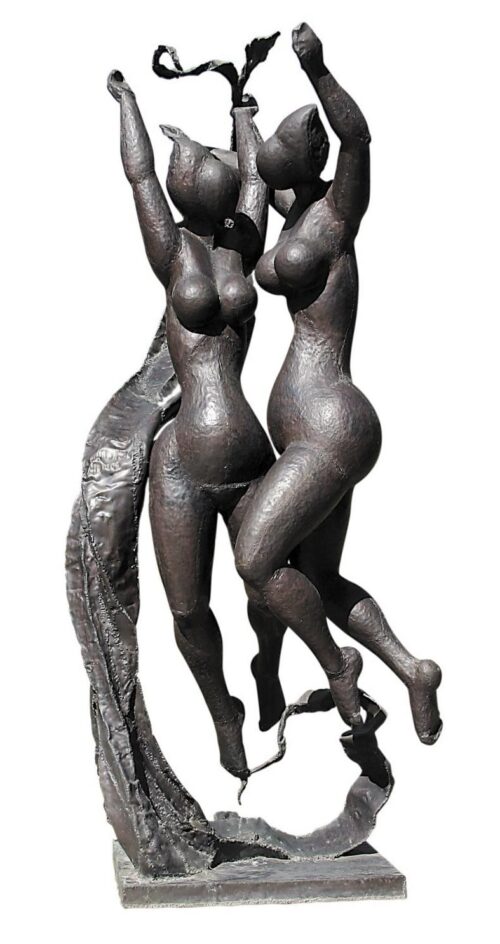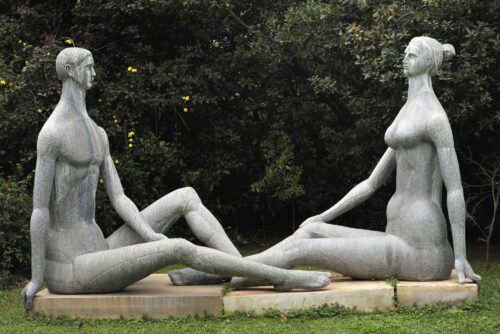
Makris Memos (Agamemnon) (1913 - 1993)
Spring Dance, 1977
He studied sculpture at the Athens School of Fine Arts (1934-1939) with professors Konstantinos Dimitriadis and Michalis Tombros. In the 1930’s, he became deeply interested in the intellectual currents of the day and joined the Greek Communist Party and the group “Neoi Protoporoi” [Young pioneers]. In 1945, he went to Paris to continue his studies with Jean-Paul Laurens and Marcel Gimond. In 1950, he was expelled from France and settled in Hungary, where he became member of the Artists’ Society, received numerous awards, including Excellence in Arts. In 1964, his Greek citizenship was taken away only to be recovered in 1975, and in 1978 he finally moved to Greece.
His work was presented in solo and major group exhibitions in Greece and abroad, such as the 1946 Salon d’Automne, the Salon de la Jeune Sculpture (1948) and the Salon des Tuileries (1950) in Paris. He also participated in Hungarian art exhibitions; in 1979, a retrospective of his work was held at the National Gallery in Athens and at the Patras Municipal Gallery in 1995.
A prolific sculptor, Memos Makris worked in bronze, lead, stone, marble and clay, with the human figure always representing his starting point. His personal style was shaped by diverse influences – his Greek origin, his life in Paris and Hungary as well as his teachers’ styles. His oeuvre comprises busts, with an emphasis on capturing the sitter’s inner world; full figure sculptures, reflecting the precepts of archaic art as well as his apprenticeship in Paris; geometrically simplified, rounded nudes; reliefs, statues and monuments, either blending the above elements or in an expressionist vein; finally, a series of cacti – his only non-anthropomorphic subject.

Spring Dance, 1977

Couple, 1971

We use cookies to make our site work properly, to personalize content and ads, to provide social media features and to analyze our traffic. We also share information about how you use our site with our social media, advertising and analytics partners. Read the Cookies Policy.
These cookies are necessary for the website to function and cannot be switched off in our systems. They are usually only set in response to actions made by you which amount to a request for services, such as setting your privacy preferences, logging in or filling in forms. You can set your browser to block or alert you about these cookies, but some parts of the site will not then work. These cookies do not store any personally identifiable information.
If you disable this cookie, we will not be able to save your preferences. This means that every time you visit this website you will need to enable or disable cookies again.
These cookies tell us about how you use the site and they help us to make it better. For example these cookies count the number of visitors to our website and see how visitors move around when they are using it. This helps us to improve the way our site works, for example, by ensuring that users find what they are looking for easily. Our website uses Google Analytics for statistics reporting.
Please enable Strictly Necessary Cookies first so that we can save your preferences!